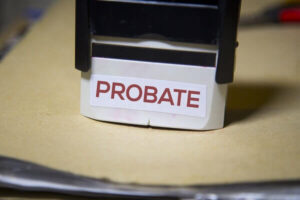
Do Retirement Accounts Go through Probate in Plainview, NY?
Probate court is an official process that ensures all assets are frozen from a deceased until they are validated, and the proper beneficiaries located. It is a way to protect beneficiaries from having assets taken from them.
The process typically happens in a few months, but for some beneficiaries, it can feel like a lifetime. A beneficiary may wait even longer if the will is contested or there is any difficulty locating assets named in the estate plan. However, in most cases the probate process will be complete approximately one year after the death.
When it comes to retirement accounts, most do not go through probate. Instead, they pass outside of probate. This includes the typical retirement accounts like:
- IRAs
- 401(k)
- 403(b)
- Roth IRAs
When you open a retirement account, the paperwork you complete includes naming a beneficiary for your account. You can name just one beneficiary or multiple. Then, when you pass away, the party that manages the retirement account will hand over the assets to the heirs named. There is no need to go through probate because the contract created at the time you make your retirement account is enough to satisfy passing the funds over immediately.
Also, because retirement accounts do not go through probate, your loved ones will not lose their assets to creditors. Creditors can only request payment from assets that pass-through probate court; therefore, the money in a retirement account will be given directly to the beneficiaries.
Common Mistakes When Naming Retirement Beneficiaries
Whether you are creating a new retirement account, or you want to revisit your beneficiaries on current accounts, it is essential that you do it right. There are ways that a retirement account will be sent to the probate court, especially when the paperwork is not completed correctly.
Therefore, make sure your retirement account does not have any of these issues:
- Not naming a spouse as the beneficiary. You are not required to designate a spouse as your beneficiary, but if you live in a community property state, you would need to. Luckily, New York is not a community property state. Therefore, if you do not wish to name your spouse, you are not legally obligated to do so. However, if you live in a community property state, your spouse is legally entitled to half of anything you have added to that account since you marry. Therefore, they could petition the courts and the retirement account would be forced to filter through probate before the funds are distributed.
- Naming your estate or trust as the beneficiary. You might think that it will save time and hassle naming a trust or your estate as a whole as the beneficiary, but then any funds distributed through the estate must go to probate court. Therefore, your loved ones will have to wait for probate to complete before they can receive any funds from your retirement account. Also, creditors can take their share of the retirement account before your loved ones receive their inheritance.
- Naming a minor as your retirement account beneficiary. Minors cannot legally inherit. So if you name a minor as a beneficiary, the funds will be sent through probate so that trust (or another designated account) can be set up to hold the funds until that minor comes of age. Knowing this, if you would still like to name a minor, you need to set up an account that manages the money for that minor under the Uniform Transfers to Minors Act (UTMA). Any financial advisor can handle this for you.
- Not naming an alternative beneficiary. If you name one heir, but they are unable to accept the inheritance, then your assets from retirement accounts would have to go to probate so that the judge could decide who inherits the account. Always name at least one alternative so that you avoid this.
- Not revisiting your beneficiary designations and updating them. It is imperative that you look over your designations at least once a year to make sure they are accurate. For example, if you were to divorce and not name your new spouse or an adult child as the beneficiary, then your ex-spouse would receive your retirement account assets, even if you have been divorced for several years.
Speak with an Estate Planning Attorney to Handle Your Retirement Accounts Properly
Whether you have one retirement account, are just entering your career field, or you are creating a retirement account for the first time, it is essential that you designate your beneficiaries correctly. Let the Law Office of Andrew M. Lamkin, P.C. help you do that. We not only help you protect your retirement account assets, but we can establish an estate plan so that your loved ones are taken care of when you pass away.
You can avoid the hassles of probate by having a well-written estate plan, or we can examine your options for a trust, which allows you to bypass probate court altogether.
To explore your options, schedule a no-obligation consultation today at 516-605-0625, or you can request an appointment online.


